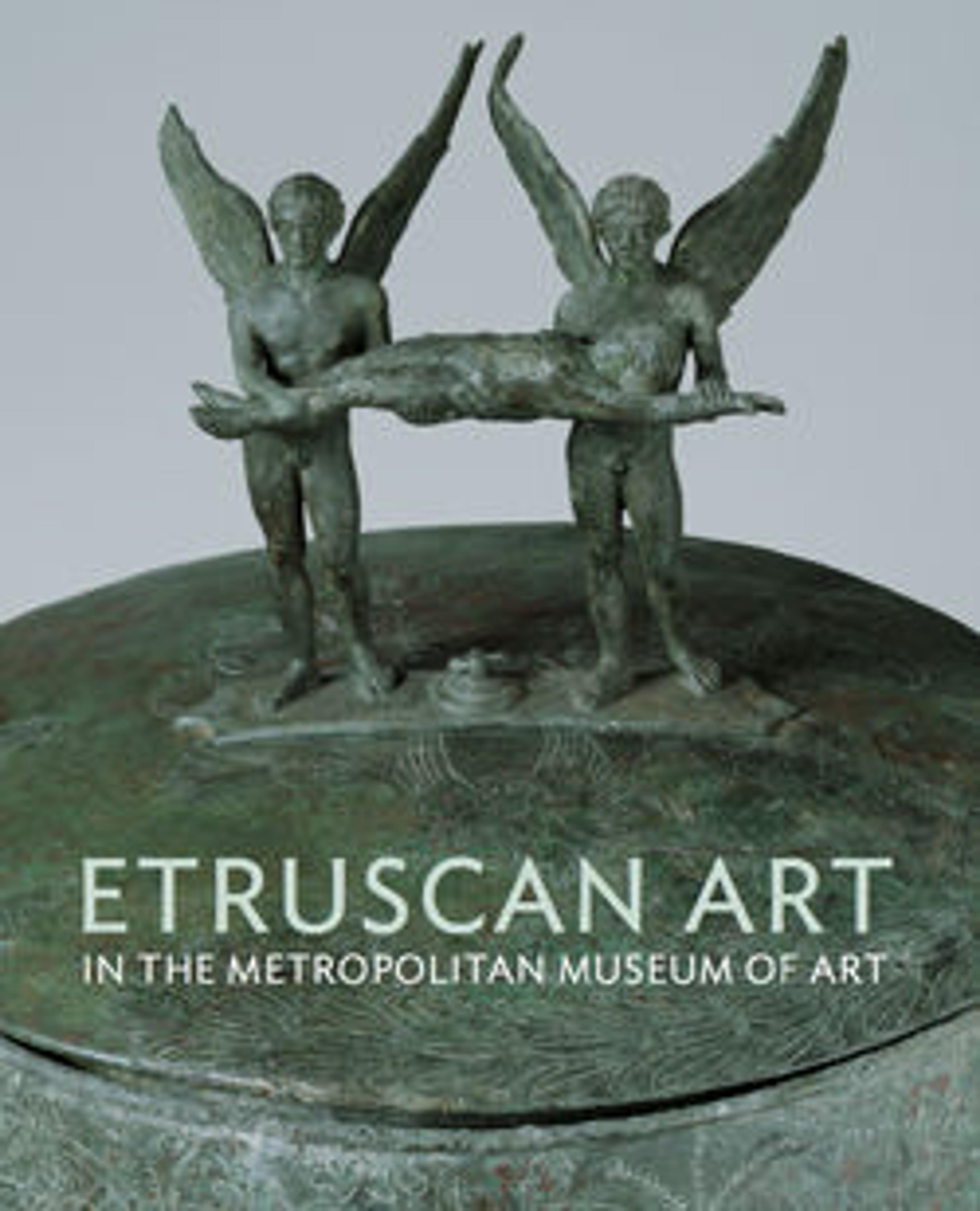Bronze cinerary urn with lid
Large hammered-bronze urns, often with solid-cast figures on the lid, were frequently used for cremated remains in Etruscan dominated Campania. Several examples have been found at Capua, that region's major city, and they were likely produced there from the late sixth to the mid-fifth century B.C. The statuettes added to the lid of this elaborately incised urn show a large nude diskos thrower surrounded by four Scythian archers mounted on rearing horses.
On the underside of the urn a two-letter inscription is engraved on the attached foot ring. It comprises two Etruscan characters: a khi (which looks like a V with a line in the center), and a V. These two characters probably indicate the number 55. The khi is in a late Etruscan letter form that is appropriate for the urn's date. The significance of the numeral remains unclear.
On the underside of the urn a two-letter inscription is engraved on the attached foot ring. It comprises two Etruscan characters: a khi (which looks like a V with a line in the center), and a V. These two characters probably indicate the number 55. The khi is in a late Etruscan letter form that is appropriate for the urn's date. The significance of the numeral remains unclear.
Artwork Details
- Title: Bronze cinerary urn with lid
- Period: Archaic
- Date: ca. 500 BCE
- Culture: Etruscan, Campanian
- Medium: Bronze
- Dimensions: 19 1/16 in. × 16 in. (48.5 cm)
- Classification: Bronzes
- Credit Line: Purchase, Joseph Pulitzer Bequest, 1940
- Object Number: 40.11.3a, b
- Curatorial Department: Greek and Roman Art
More Artwork
Research Resources
The Met provides unparalleled resources for research and welcomes an international community of students and scholars. The Met's Open Access API is where creators and researchers can connect to the The Met collection. Open Access data and public domain images are available for unrestricted commercial and noncommercial use without permission or fee.
To request images under copyright and other restrictions, please use this Image Request form.
Feedback
We continue to research and examine historical and cultural context for objects in The Met collection. If you have comments or questions about this object record, please contact us using the form below. The Museum looks forward to receiving your comments.
